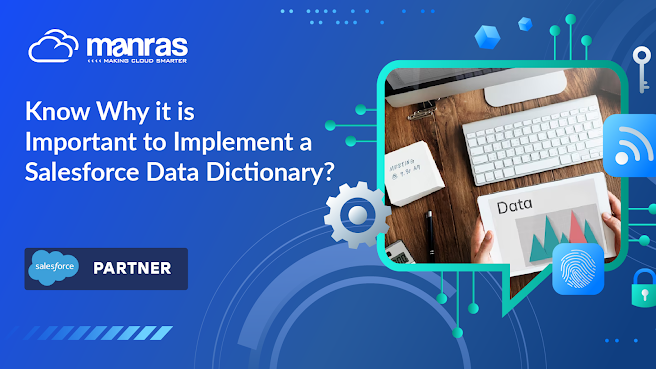Dealing with data challenges, from reporting fears to battling data silos and compliance issues, can be overwhelming. Poor data management practices can even lead to financial troubles. That’s where Salesforce Data Dictionary steps in to make things easier. It simplifies data classification across different parts of your system, ensuring compliance and making reporting a breeze.
In this article, we’ll break down what Salesforce Data Dictionary is and why it’s essential for effective data management.
What is the Salesforce Data Dictionary?
Salesforce Data Dictionary is like a detailed handbook that brings together names, attributes, and descriptions of things like data and business processes in a company’s system. Its main job is to make sure everyone in the business talks about these things in the same way. For instance, it helps specify whether certain data includes personally identifiable information (PII). Acting as a central hub for information, this Salesforce implementation keeps track of all changes made in Customer Relationship Management (CRM). This way, teams can quickly figure out how changes might affect their work and make future adjustments without worrying about things breaking.
5 Reasoning to Implement Salesforce Data Dictionary
Now that you understand what a Salesforce Data Dictionary is, let’s explore the top 5 reasons why using it can make a big difference.
1. Streamlined Communication Across Teams:
Simplifying communication about metadata definitions and the integration of third-party tools with Salesforce is a common challenge. Introducing an automated Salesforce Data Dictionary not only eases this process but also ensures better clarity in metadata definitions. By offering clear and concise definitions, reducing the need for constant clarifications, and fostering a shared understanding of data structures, a data dictionary becomes a unifying tool. The system’s efficiency gains are substantial, transforming a previously manual, spreadsheet-based process into an automated documentation system that updates in real-time with each organisational change.
Read more: https://www.manras.com/know-why-it-is-important-to-implement-a-salesforce-data-dictionary/

Comments
Post a Comment